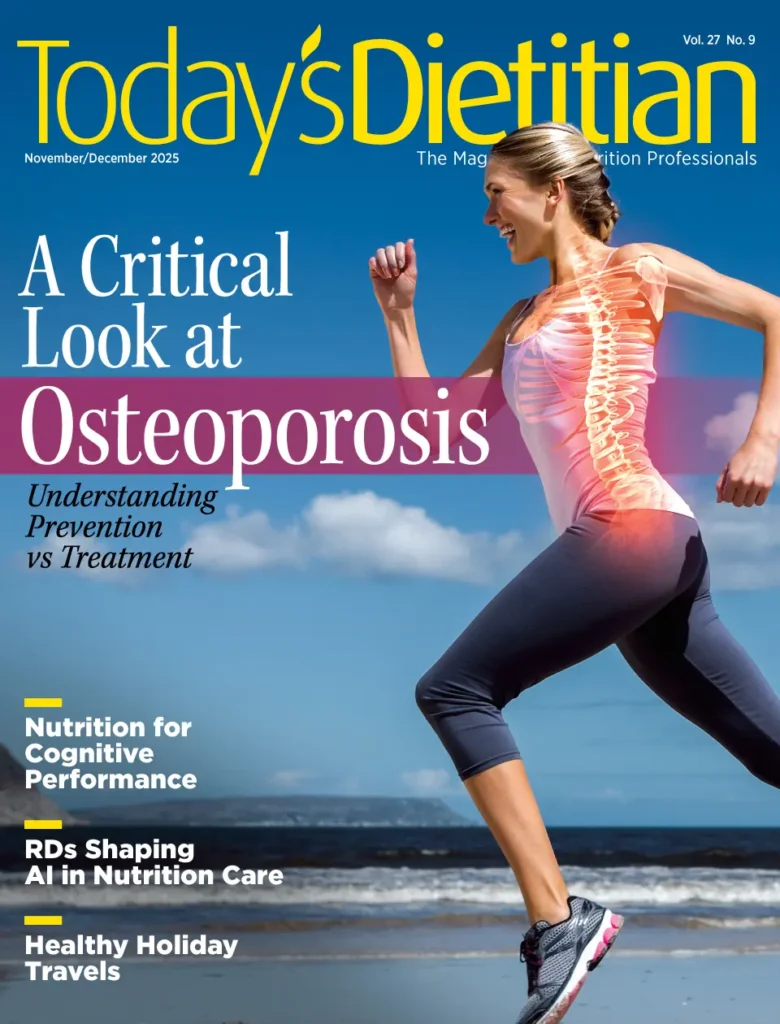Health claims characterize the relationship between a substance and its ability to reduce the risk of a disease or health-related condition.
Department
Back-to-school season can be a time of excitement and new beginnings for families, but it also means getting back to busy weeknight schedules with extracurricular activities and the intention of an earlier bedtime.
A decades-long trade war between tropical and vegetable oils ended abruptly in 2015 when the FDA declared partially hydrogenated oils (PHOs)—then the major source of artificial trans fats—were no longer “generally recognized as safe.”
September is National Family Meals Month, an initiative of the Food Marketing Institute (FMI) Foundation celebrating its 10th year in 2024.
It is with mixed emotions that we announce a transition within the Today’s Dietitian editorial team. Our esteemed editor, Judy Riddle, is stepping down after 13 years of dedicated service to our publication.
The Federal Trade Commission (FTC) recently updated its social media disclosures. Can you highlight the important changes RDs need to know?
Digital food retail services like food delivery apps, meal kits, and online grocery shopping are more easily accessible and highly utilized in today’s busy culture.
Learning doesn’t end once a dietitian earns a degree, completes an internship, or passes the registration exam.
War, inflation, housing prices, elections, social polarization, post-COVID stresses, and work expectations—consumers today certainly have a lot on their minds.
Due to the clear link between exercise and long-term physical health—as well as cognition and mental health—the Department of Health and Human Services released the Physical Activity Guidelines for Americans, with input from the American College of Sports Medicine (ACSM) and the CDC, to recommend adults fit in at least 150 minutes of moderate-intensity aerobic activities.


